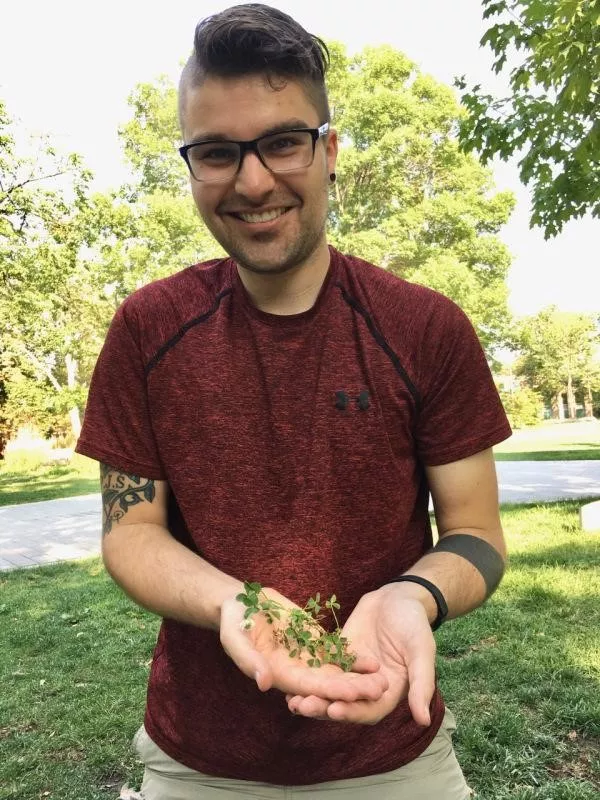
David Murray-Stoker 1st author in OIKOS Journal
OIKOS Journal published this month David Murray-Stoker's 1st authored paper: Ecological consequences of urbanization on a legume-rhizobia mutualism
David, PhD student in Marc Johnson Lab, wrote about this paper:
Urbanization is a major driver of ecosystem change at local and global scales, with the spatial extent of urbanization increasing as more people move to and reside in cities. Urban environments are frequently associated with changes to the biotic and abiotic setting. Biotic changes frequently include fragmented habitats, homogenization of species composition, reduced abundance and diversity of native species, and increased abundance of non-native species. Common changes to the abiotic environment include increased impervious surface cover, elevated temperatures, higher pollution levels (e.g., air, water, light, noise) and increased nutrient deposition (e.g., nitrogen). However, there is limited research on the direct and indirect impacts of urbanization on species interactions, particularly mutualisms. Mutualisms are key determinants of community assembly and composition, but urbanization can alter the dynamics of these interactions and associated effects on ecosystem functions. In this study, we examined the effects of urbanization on the mutualism between white clover (Trifolium repens) and its rhizobial symbiont (Rhizobium leguminosarum symbiovar trifolii). Sampling along an urbanization gradient in the Greater Toronto Area, ON, we evaluated the hypothesis that urbanization alters the ecological consequences of this nutrient-provisioning mutualism. We found that the investment by white clover in the mutualism decreased with increasing urbanization. We also found that the source of nitrogen used by white clover varied along an urban gradient: plants acquired nitrogen directly from the soil at the urban and rural ends of the gradient, but fixed nitrogen from rhizobia was the primary source for the majority of populations. Importantly, we identified soil nitrogen as a crucial link between the effects of urban environmental change on the clover-rhizobium mutualism. We have shown that urbanization alters the ecology of the mutualism, and our next steps and ongoing work are to determine if altered ecology also results in altered (co)evolution.
